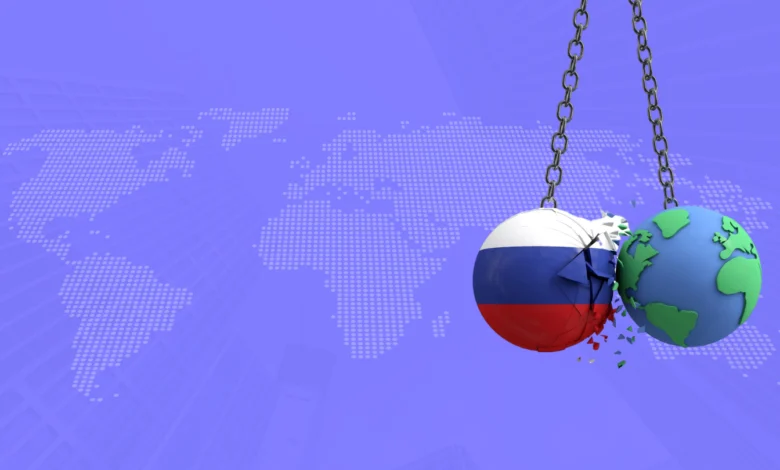What Types of Sanctions and Embargoes Impact Global Trade and Finance?

Have you ever thought about how sanctions and embargoes can change global trade and finance?
The former US Secretary of State Madeleine Albright said that Sanctions are the middle ground between war and words.
In the international political economy, measures of economic restriction are applied by governments or international organizations to pressure other entities to change their conduct.
These measures have significant implications for global trade, investment, and financial sectors. To work in the international environment effectively, one must have a deeper understanding of such practical concepts as sanctions screening and embargoes.
Sanctions and Embargoes
A sanction and embargo are measures employed by governments and organizations to influence other people.
Sanctions and embargoes examples can be economic through a policy of blocking exports or imports or against certain individuals or a certain community.
Sanction and embargo can prohibit offering particular merchandise or the freezing of individuals’ money.
Learning about sanctions and/or embargoes is crucial in the financial field as it has the power to influence global operations, especially in international business.
Bonus: For details about how embargoes and international sanctions affect international finance, visit our website.
Economic Sanctions and Their Effects
One form of sanction is known as economic sanctions. They want to damage a country’s economy by restricting the ability to import or export goods or access to capital markets.
For instance, a country may prevent the shipment of some products or prohibit organizations from engaging with any other company with some personality or group.
Sanctions have reached across many spheres of global relations, disrupting supply chains and moving markets.
According to statistics of 2023, more than 30 nations worldwide were under sanctions for the global economic cost, the target economy losses of which were more than 1.3 trillion US dollars.
Export Restrictions and Trade Embargoes
Other types of sanctions include export restrictions and trade embargoes. These prevent the sale of goods and services to specified countries, organizations, or persons.
Some can be employed in a proposal to block the uptake of some technology or to punish a nation for something it has done.
Bans in the form of trade Sanctions and embargoes affect international business and the supply chain of products around the globe.
In 2023, the USA placed an embargo on the export of semiconductors to check the advancement of China in the field of AI and military technology.
Financial Sanctions and Asset Freezes
Sanctions can cover financial systems. Economic measures, such as financial restrictions, may restrict participation in the international banking system or freeze the property of concrete individuals or organizations.
This can make it extremely complicated for them to engage in business or even get their cash. This measure is effective as it directly influences a target, restricting its opportunities to use the services of the international finance system.
Measures in 2023 have spurred over 9000 entities globally with billions of dollars worth of assets targeted for measures, including served SWIFT banking system blocks.
Sectoral Sanctions Targeting Industries
Whereas sectoral sanctions target a particular sector of a country’s economy, they do not entirely lock out an entire nation.
For instance, a government may restrict the sale of specific technologies or have a policy that its firms cannot transact with particular sectors.
Sanction is designed to target certain areas or sectors of an economy with loss while not having a rather rampant effect on an entire country.
The use of sectoral sanctions can greatly impair trade operations and investment in the affected sectors.
Nine months into 2023, as sanctions continued to bite Russia’s oil industry, its oil exports were down by over 25 percent.
Comprehensive Embargoes on Countries
The most stringent sanction is a total embargo where all purchases, sales, and money transfers with the targeted country are prohibited.
These broad sanctions are meant to cut it off from the international market system completely. The United States has banned the exportation of foodstuffs and other goods to Cuba for many years.
Comprehensive sanctions cause significant losses to an affected country’s economy and population. It makes them a potent but highly loaded method of foreign policy.
The human consequences of complete sanctions, like the ones in place in Iran and Russia, have been measured in billions of dollars and limited exports.
Targeted Sanctions Against Individuals
Targeted sanctions can include freezing an individual’s property or placing a travel ban on them. It fits where the defendant is a governmental official, business person, or any other person alleged to have committed an offense.
This is done to target some specific leaders in their decision-making processes and not influence a massive population.
It revealed how personalized coercive measures can cause problematic consequences to a person’s basic financial needs and operations as well as enterprise engagements.
According to a 2023 report, the US has placed sanctions on more than 400 persons in the global market for corruption and violation of human rights.
Impacts on Global Financial Systems
Measures such as sanctions and embargoes affect the world’s financial sector. Inhibitions from participating in the banking system, control of export and import of currency, and freezing of assets are all uneasy and unpredictable.
This can result in an increase in financial risks and fluctuations in the markets, problems in transnational payments, and issues for businesses and the population to solve.
This is why sanctions play an important role in the know-how of the finance professional, as the consequences affect every sector of international finance.
Read our view on sanctions and embargoes and make sure you stay informed on the latest tendencies and changes.



